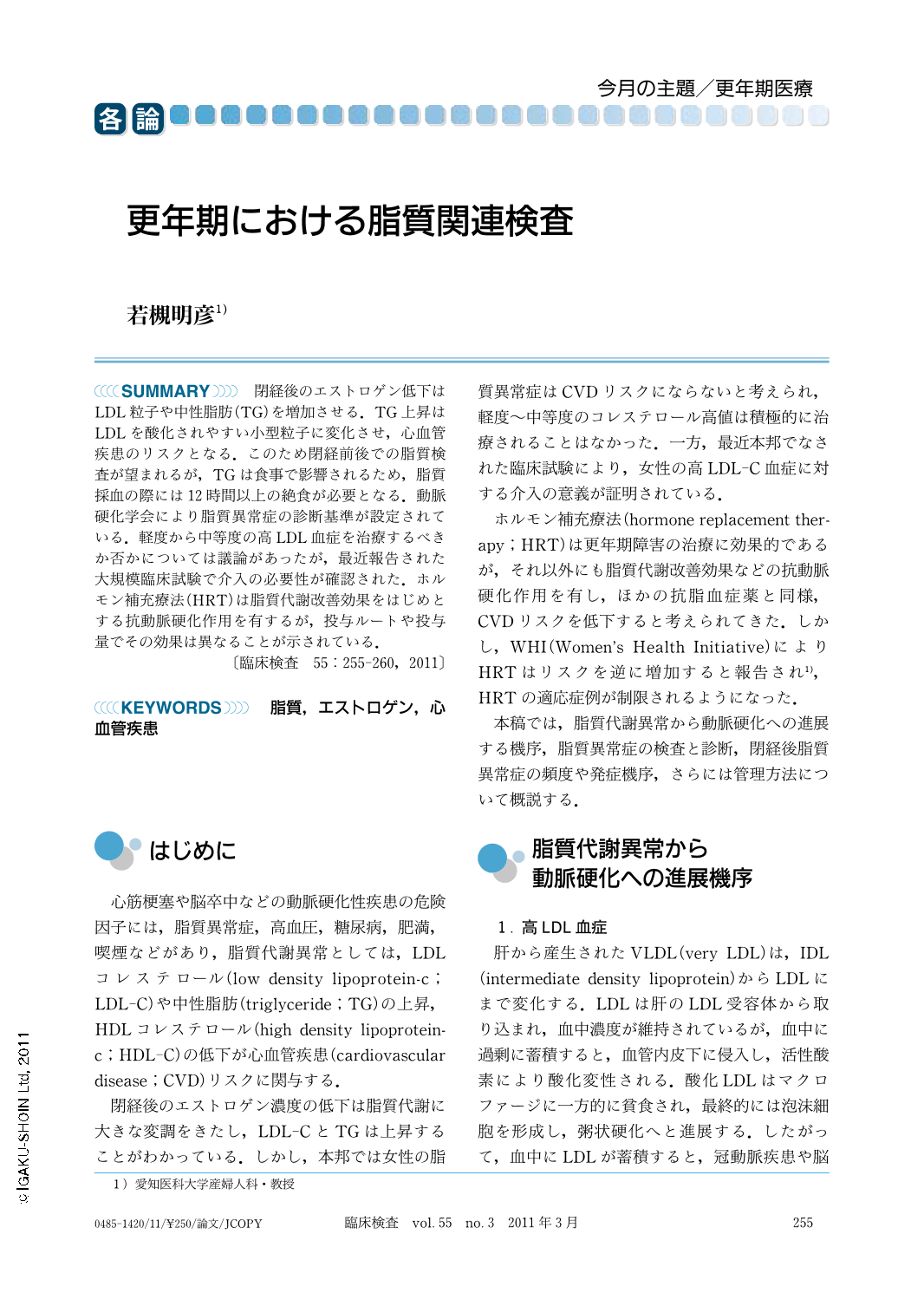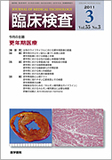Japanese
English
- 有料閲覧
- Abstract 文献概要
- 1ページ目 Look Inside
- 参考文献 Reference
閉経後のエストロゲン低下はLDL粒子や中性脂肪(TG)を増加させる.TG上昇はLDLを酸化されやすい小型粒子に変化させ,心血管疾患のリスクとなる.このため閉経前後での脂質検査が望まれるが,TGは食事で影響されるため,脂質採血の際には12時間以上の絶食が必要となる.動脈硬化学会により脂質異常症の診断基準が設定されている.軽度から中等度の高LDL血症を治療するべきか否かについては議論があったが,最近報告された大規模臨床試験で介入の必要性が確認された.ホルモン補充療法(HRT)は脂質代謝改善効果をはじめとする抗動脈硬化作用を有するが,投与ルートや投与量でその効果は異なることが示されている.
Plasma concentrations of LDL and triglyceride (TG) have been shown to increase after menopause. TG increase in the plasma may reduce the size of LDL particles. This makes them more susceptible to oxidation. Postmenopausal women should receive lipid examination following a 12-hour fast, because plasma TG concentrations may be influenced by calorie intake. A recent study demonstrated that statin use can decrease the risk of cardiovascular disease in patients with mild to moderate hypercholesterolemia. Postmenopausal hormone replacement therapy has anti-atheroscletic effects such as lipid improvement. Recent studies have reported that a different route or dose of estrogen administration may affect estrogen's favorable effects on atherosclerosis.

Copyright © 2011, Igaku-Shoin Ltd. All rights reserved.


